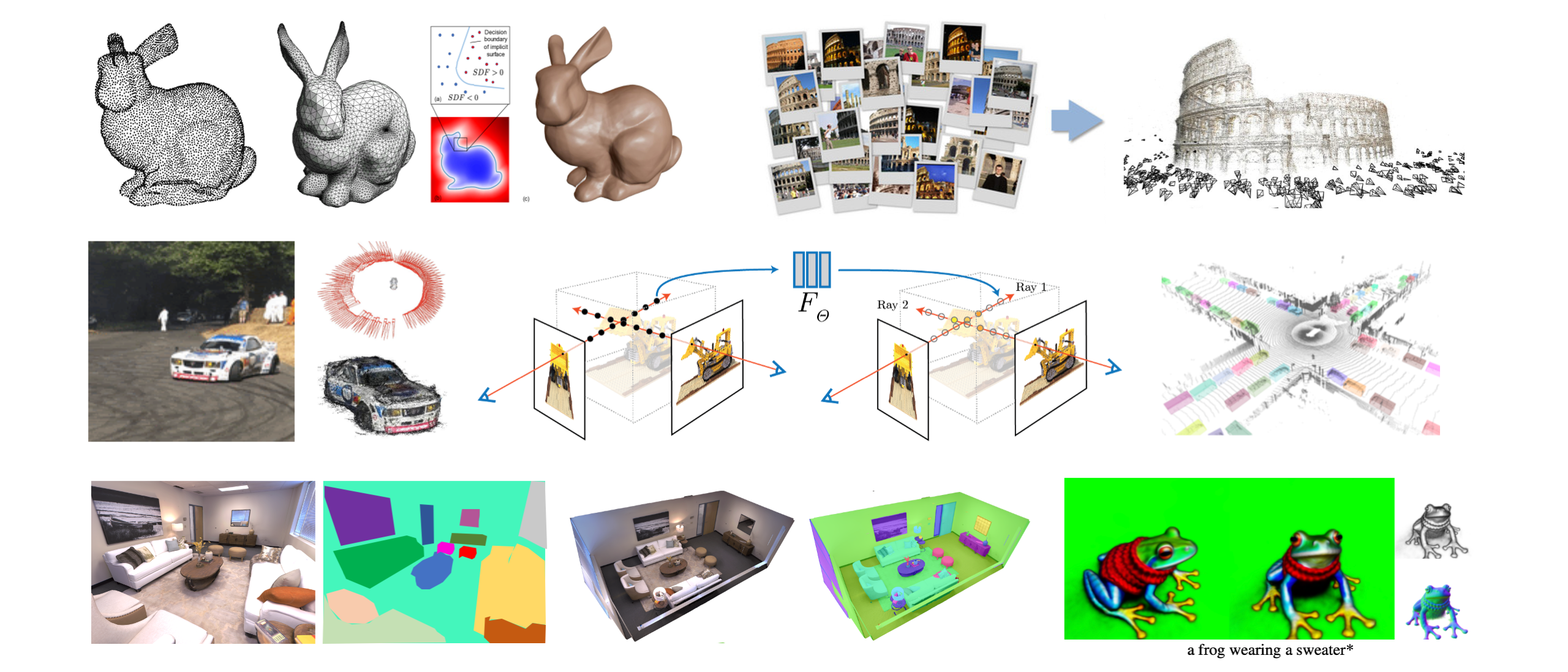CS 6501 3D Computer Vision (Fall 2024)
University of Virginia

Course Description
The ability to perceive the world in 3D is critically important for humans and has extensive applications in robotics, graphics, virtual/augmented reality, and more. This course will delve into the foundational concepts and recent advancements at the intersection of machine learning and 3D computer vision. In particular, we will cover the following topics in this course:
- Classical Multiview Geometry
- Explicit, Implicit, and Neural 3D Representations
- Differentiable rendering
- Single-view 2.5D and 3D Prediction
- Generative 3D models
- Modeling 3D in Time
- 3D Meets Robotics and Beyond
Course Objective
Upon the completion of this course, the students should:
- have a big picture of the history and recent trends in 3D computer vision;
- be able to analyze the recent 3D vision papers critically;
- identify compelling future research questions within the field;
- learn how to communicate and collaborate in research, and how to present efficiently;
Course Staff

Instructor: Zezhou Cheng
Email: zc3bp@virginia.edu
Office hour: 1:00-2:00pm Friday
Location: Rice hall, Room 502

Course Platforms
- Ask questions, look for teammates, check out announcements on Piazza
- Submit assignments, presentation slides, or project reports on Gradescope
- Give us (anonymous) feedbacks on Canvas
Course Format
The course format will include a combination of lectures, student-led presentations, homework assignments, and course projects. To have fun, we adopt the Role-Playing Paper-Reading format in the student-led presentations.
Time and Location
- Dates: 08/27/2024 - 12/06/2024
- Meets: MoWe 3:30PM - 4:45PM
- Room: Olsson Hall 011, Main Campus
Acknowledgement
The course material borrows heavily from the following seminar lectures:
- Learning for 3D vision. Angjoo Kanazawa. UC Berkeley
- Learning & 3D. Georgia Gkioxari. Caltech
- Learning for 3D Vision. Shubham Tulsiani. CMU
- 3D Vision. Derek Hoiem. UIUC
- Computer Vision. Subhransu Maji. UMass Amherst